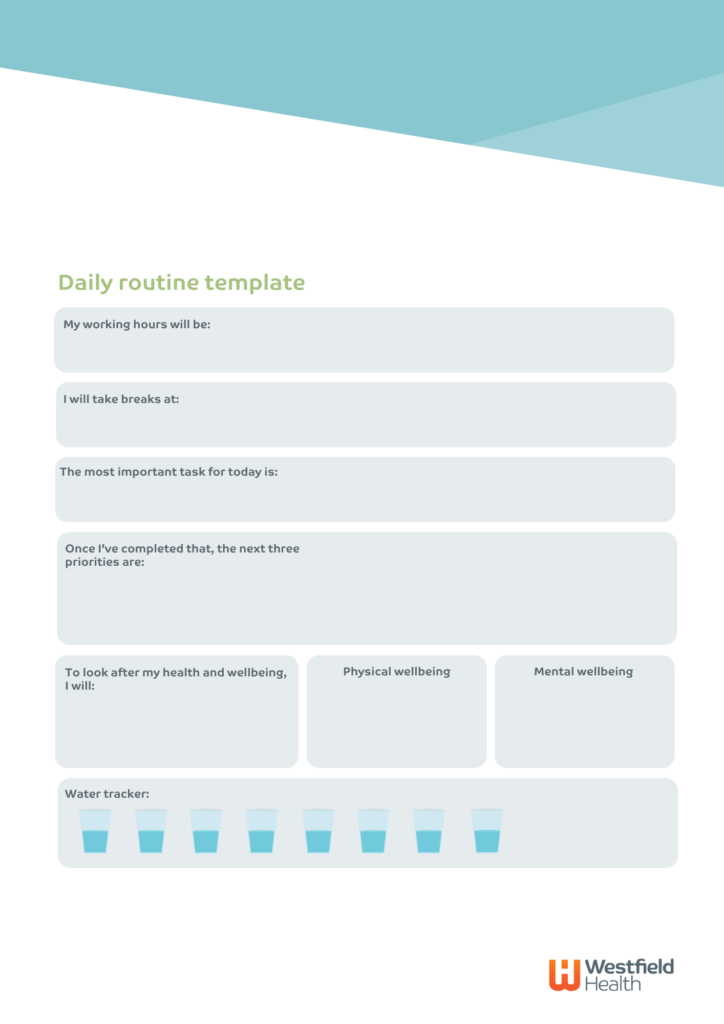Working from home gives you more flexibility than working in an office, but it can also lead to the normal boundaries between work and home life becoming blurred.
Over time, this can start to take its toll on our mental health, so it’s important to think ahead and create a healthy work routine.
Designing your routine
It’s a good idea to put together a clear plan for when it’s time to work, when it’s time to have a break and when it’s time to relax back into home life.
Start by thinking about when you’re most productive. This might also need to take into account additional responsibilities such as childcare or caring for others.
A great way to create consistency is to set the same wake-up time and bedtime every day. Why not try getting up at your usual time, getting ready, then using your usual commute time for some morning stretching or to read a book?
Creating a routine will give a sense of stability and structure that will help put you in the right mindset for your working day.
Questions to ask yourself when designing your routine.
- What times of day am I most productive?
- How can I make the most of those times of day?
- What tasks should I focus on then?
- When am I likely to get distracted? How can I mitigate that?
- What are the non-work things I enjoy that boost my mood and make me more productive? How can I build those into my day?
- Is the routine I’ve outlined not just feasible but sustainable?
Use this template to help you design the right routine for you:
Sticking to your schedule
It’s one thing to create a timetable, but another thing to stick to it! This discipline is one of the most difficult things to get used to when you first start working from home, but is absolutely key.
Keeping to the working hours you set will also prevent you from over-working which is easy to do when your office is at home.
If you live with others, try sharing your work schedule with them so they know when you’ll be around and when you’ll need to concentrate.
Promoting productivity
It’s impossible to operate at 100% throughout the day. Even the most energetic, dynamic and dedicated person can’t be giving it their all, constantly, throughout the day. That means you need to take a break.
Experts agree that the optimum concentration span for the human brain is around 50 minutes, so planning your work schedule in 50 minute blocks and interspersing these with short breaks will allow you to perform more effectively and efficiently throughout the day.
Don’t skip your lunch break and eat away from your work space. If you really are too busy to take a proper lunch break then make sure you take at least 15 minutes away.
Use your break times to clear your mind, stretch, get outside for some fresh air if you can and connect with others – even if that is via phone. Breaks allow you to unwind, re-focus and then apply yourself better.
